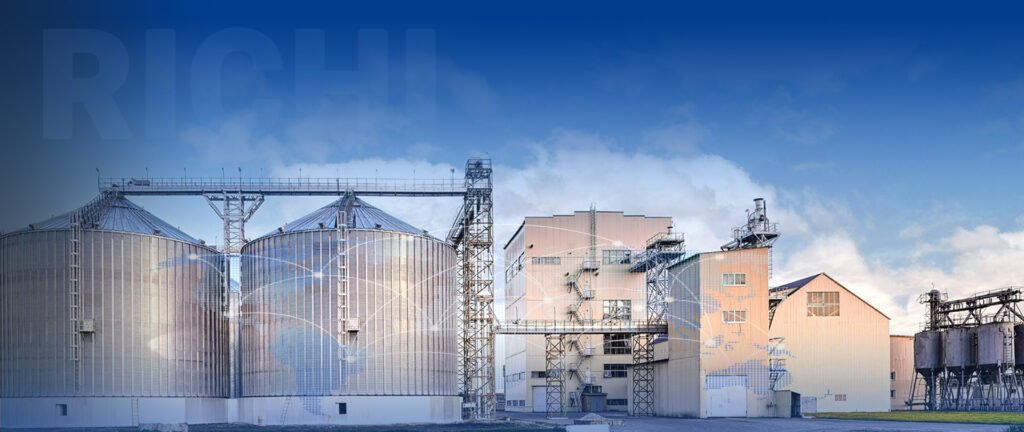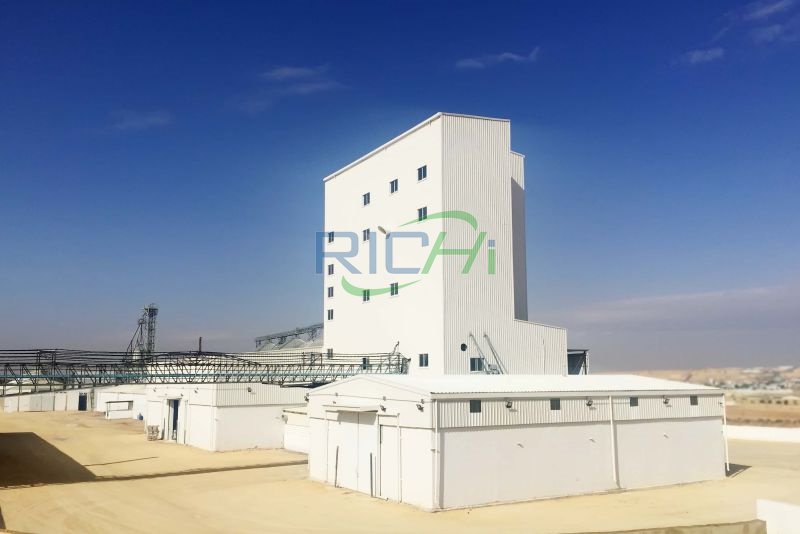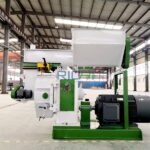Premix feed mills are pivotal in the animal nutrition industry, producing concentrated blends of essential nutrients that enhance the overall quality and efficiency of animal feeds. These premixes, which typically make up 0.5% to 5% of the total feed composition, ensure that animals receive the necessary vitamins, minerals, and other nutrients in their diets, contributing to their health, growth, and productivity. This article delves into the various products processed in premix feed plants and their significance in the realm of animal nutrition.
Core Premix Products
1. Vitamin Premixes
- Fat-Soluble Vitamins: A, D, E, and K.
- Water-Soluble Vitamins: B-complex vitamins, Vitamin C, and Choline Chloride.
- These premixes are customized to fulfill the specific vitamin needs of different animal species and life stages, playing a crucial role in maintaining their overall health.
2. Mineral Premixes
- Macro Minerals: Calcium, Phosphorus, Magnesium, Sodium, Potassium.
- Trace Minerals: Iron, Zinc, Copper, Manganese, Selenium, Iodine.
- Mineral premixes are available in both inorganic and more bioavailable organic forms, depending on the target species and nutritional goals.
3. Vitamin-Mineral Combinations
- These are comprehensive packages that combine essential vitamins and minerals, providing a convenient solution for smaller feed mills or farms seeking simplified inventory management.

Specialized Premix Products
4. Amino Acid Supplements
- Common Amino Acids: Lysine, Methionine, Threonine, Tryptophan.
- These supplements optimize protein utilization in animal diets, ensuring that animals receive the necessary building blocks for growth and development.
5. Enzyme Additives
- Key Enzymes: Phytases (improving phosphorus utilization), Carbohydrases (e.g., xylanases, β-glucanases for fibrous material digestion), and Proteases (enhancing protein digestion).
- Enzyme additives improve feed efficiency by enhancing nutrient digestibility.
6. Probiotic and Prebiotic Blends
- Probiotics: Beneficial bacteria strains that support gut health.
- Prebiotics: Compounds that promote the growth of beneficial gut microorganisms.
- These blends help maintain a healthy digestive system in animals, which is essential for nutrient absorption and overall well-being.
7. Acidifiers
- Common Acidifiers: Formic acid, Propionic acid, and their salts.
- Acidifiers improve feed hygiene, enhance nutrient digestibility, and support gut health, particularly in young animals.
8. Antioxidant Premixes
- Synthetic Antioxidants: BHT, BHA.
- Natural Antioxidants: Tocopherols, plant extracts.
- These premixes preserve feed quality by preventing oxidation, thereby extending the shelf life of feed products.
9. Mycotoxin Binders
- Specialized blends that mitigate the risks associated with mycotoxin contamination in animal feeds, protecting animal health and ensuring feed safety.
Performance-Enhancing Premixes
10. Growth Promoters
- Antibiotic Growth Promoters: (Where allowed by regulations) Used to promote faster growth in animals.
- Non-Antibiotic Growth Promoters: Organic acids, essential oils.
- These additives help improve feed efficiency and animal growth rates.
11. Flavor Enhancers
- Ingredients: Natural and artificial flavors, sweeteners.
- These enhancers improve the palatability of feeds, encouraging animals to consume adequate quantities of their diets.
12. Pigments and Colorants
- Sources: Natural carotenoids (e.g., marigold extract) and synthetic carotenoids.
- Used in feeds for specific applications, such as enhancing egg yolk color or improving the appearance of farmed fish.
Specialized Nutritional Premixes
13. Transition Cow Premixes
- Formulation: Higher levels of certain vitamins and minerals, anionic salts for managing calcium metabolism.
- These are designed to support dairy cows during the critical transition period around calving.
14. Breeder Premixes
- Focus: Reproductive health and offspring vitality.
- Includes enhanced levels of vitamins E and A, organic trace minerals, and specific ratios of calcium and phosphorus.
15. Aquaculture Premixes
- Specialization: Tailored for fish and shrimp nutrition, including specialized vitamin blends and essential fatty acids.
- These premixes are crucial for supporting the growth and health of aquaculture species. (Related post:hog feed mill)
16. Pet Food Premixes
- Inclusions: Taurine for cats, glucosamine, and chondroitin for joint health.
- These are formulated to meet the specific nutritional needs of pets at various life stages.
Custom and Specialty Products
17. Medicated Premixes
- Content: Coccidiostats for poultry, antibiotics for disease prevention or treatment (where legally permitted).
- These premixes are produced in compliance with local regulations to address specific health challenges in animal populations.
18. Organic Premixes
- Characteristics: Made with naturally sourced vitamins and minerals, and organic-compliant additives.
- Designed for the growing organic livestock sector, ensuring adherence to organic certification standards.
19. Non-GMO Premixes
- Requirement: Produced using certified non-GMO ingredients.
- These premixes cater to markets that demand non-GMO animal feeds.
20. Species-Specific Formulations
- Examples: Racing horse premixes, show animal supplements, exotic animal nutrition blends.
- Highly specialized premixes are developed to meet the unique nutritional needs of specific animal species or breeds.
Conclusion
Premix feed mills are at the heart of modern animal nutrition, processing a wide array of products that cater to the diverse needs of the livestock, aquaculture, and pet food industries. By producing precise, homogeneous blends of micro-ingredients, these mills ensure that animals receive the essential nutrients they need to thrive. As the science of animal nutrition continues to advance, premix feed mills will remain instrumental in driving innovation and sustainability in animal production worldwide.


